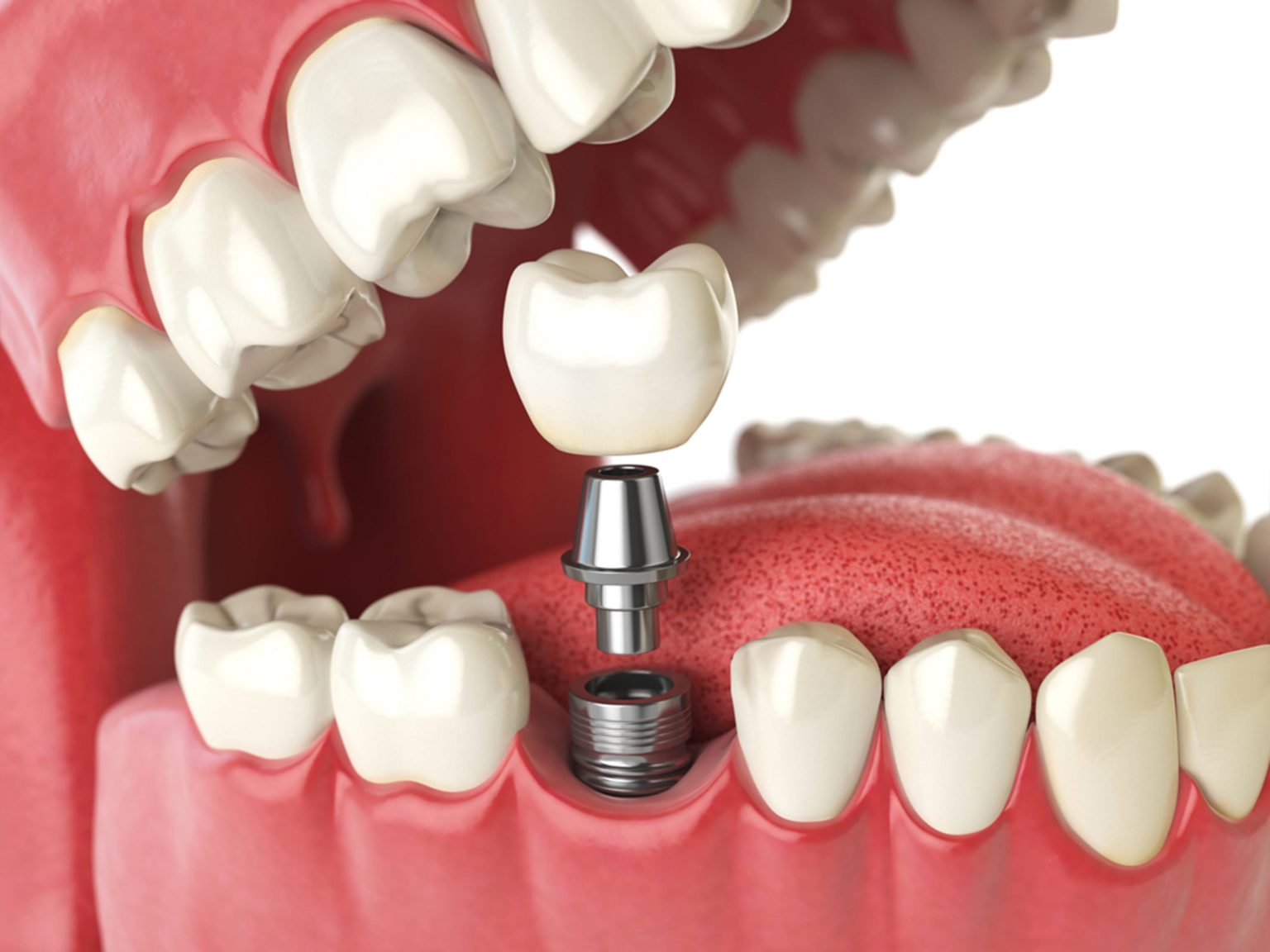
Dental implants are a popular option for people who have lost one or more teeth. They are an artificial tooth root that is surgically implanted into the jawbone, and then a crown or other prosthetic is attached to the top. Dental implants can improve the look of your smile, make eating and speaking easier, and prevent further bone loss in the jaw.
If you are considering dental implants, here are some things you should know:
Dental implants are a long-term solution. Unlike dentures, which need to be replaced every few years, dental implants are designed to last a lifetime.
The dental implant process takes time. It can take several months from start to finish, as the implant needs to fuse with the jawbone before the prosthetic can be attached.
Dental implants are an investment. While they may cost more upfront than other tooth replacement options, they are a worthwhile investment in your oral health and overall wellbeing.
Dental implants require good oral hygiene. Just like your natural teeth, dental implants require regular brushing and flossing to keep them healthy.
Not everyone is a good candidate for dental implants. Your dentist will need to evaluate your oral health and the condition of your jawbone to determine if dental implants are the right option for you.
If you decide that dental implants are right for you, it is important to find an experienced and qualified dental professional to perform the procedure. With proper care, dental implants can last a lifetime and improve your oral health and overall wellbeing.
Certainly! Dental implants are a popular option for replacing missing teeth, and there's a lot to know about them. Here are some potential topics for a dental implants blog:
Dental Implants: A Permanent Solution to Missing Teeth
Missing teeth can be a source of embarrassment and discomfort for many people. Not only can they affect your appearance, but they can also make it difficult to eat and speak properly. Fortunately, dental implants offer a permanent solution to missing teeth that can restore both your confidence and your oral function.
What are dental implants?
Dental implants are artificial tooth roots that are surgically placed into the jawbone to support replacement teeth or bridges. They are typically made of titanium, a strong and lightweight metal that is compatible with the human body. Once the implants are in place, they fuse with the jawbone over several months through a process called osseointegration, providing a stable and durable foundation for the replacement teeth.
What are the benefits of dental implants?
Dental implants offer several advantages over other tooth replacement options, such as bridges or dentures:
Improved oral function: Because dental implants are anchored directly into the jawbone, they offer a stable and secure base for replacement teeth, allowing you to eat and speak with confidence.
Improved appearance: Dental implants look and feel like natural teeth, giving you a more natural and attractive smile.
Improved oral health: Unlike bridges or dentures, which can trap food and bacteria and lead to decay or gum disease, dental implants do not require any special cleaning techniques and can be cared for like natural teeth.
Long-lasting: With proper care, dental implants can last for many years or even a lifetime, making them a cost-effective solution in the long run.
What is the dental implant procedure like?
The dental implant procedure typically involves several stages:
Consultation: Your dentist or oral surgeon will evaluate your oral health and determine if you are a good candidate for dental implants. This may involve X-rays or other imaging techniques to assess the health of your jawbone.
Implant placement: During this stage, the dental implant(s) will be surgically placed into your jawbone. You may be given a local anesthetic to numb the area, and sedation may also be an option to help you relax.
Osseointegration: Over the next several months, the implants will fuse with the jawbone through a process called osseointegration. During this time, you may be given a temporary restoration to wear.
Abutment placement: Once the implants have fused with the jawbone, an abutment will be attached to the implant(s) to support the replacement teeth.
Restoration: The final stage of the process involves placing the replacement teeth or bridges onto the abutment(s). Your dentist will work with you to ensure that the restoration looks and feels natural.
Caring for dental implants
Caring for dental implants is similar to caring for natural teeth. You should brush and floss regularly, avoid chewing on hard or sticky foods, and visit your dentist for regular check-ups and clean
Dental Implants: An Overview
Missing teeth can be a source of embarrassment and discomfort for many people. Fortunately, dental implants are a popular and effective option for replacing missing teeth. In this article, we'll provide an overview of what dental implants are, how they work, and what patients can expect during the implant process.
What are Dental Implants?
Dental implants are artificial tooth roots that are placed into the jawbone. They are made of titanium, a strong and biocompatible material that is well-suited for dental use. Once the implants are placed, they fuse with the surrounding bone tissue in a process called osseointegration. This creates a stable foundation for a dental crown or other restoration to be attached.
What are the Benefits of Dental Implants?
Dental implants offer several advantages over other tooth replacement options, such as dentures or bridges. Some benefits of dental implants include:
Improved appearance: Dental implants look and feel like natural teeth, which can boost patients' confidence and self-esteem.
Better function: Dental implants function like natural teeth, allowing patients to eat, speak, and smile with ease.
Longevity: With proper care, dental implants can last for many years, making them a cost-effective choice for many patients.
Improved oral health: Unlike dentures, which can trap food and bacteria against the gums, dental implants do not affect surrounding teeth or gums.
How are Dental Implants Placed?
The dental implant process typically involves several steps:
Consultation: Patients will first meet with their dentist or oral surgeon to discuss whether dental implants are a good option for them. This may involve a dental exam, X-rays, and other diagnostic tests.
Implant placement: If dental implants are deemed appropriate, the patient will undergo a minor surgical procedure to have the implants placed into the jawbone. Local anesthesia or conscious sedation is typically used to ensure the patient's comfort during the procedure.
Healing and osseointegration: After the implants are placed, the patient will need to allow time for them to heal and fuse with the surrounding bone tissue. This process typically takes several months.
Restoration placement: Once the implants have fully integrated with the bone tissue, the patient will return to the dentist or oral surgeon to have the final restoration (such as a dental crown or bridge) attached to the implants.
Caring for Dental Implants
Proper care of dental implants is crucial for their longevity and success. Patients should follow these guidelines:
Brush and floss regularly: Just like natural teeth, dental implants need to be brushed and flossed regularly to prevent plaque buildup and gum disease.
Avoid hard or sticky foods: Patients should avoid biting down on hard or sticky foods, as these can damage the implant or restoration.
Attend regular dental checkups: Patients should schedule regular dental checkups to ensure their implants and surrounding teeth and gums remain healthy.
Costs of Dental Implants
The cost of dental implants can vary depending on several factors, such as the number of implants needed, the type of restoration required, and the patient's insurance coverage. However, dental implants are generally considered a cost-effective option for tooth replacement due to their longevity and durability.
In conclusion, dental implants are a popular and effective option for replacing missing teeth. Patients should consult with their dentist or oral surgeon to determine if dental implants are right for them, and follow proper care guidelines to ensure their implants last for many years.
Our Doctors
SMILE IN MINUTES Dental Care Doctors

Dr. Priyanka
Sr. Dental Surgeon

Dr. Mowmita Barik
Dental Surgeon (BDS)

Dr. Sapna
Dental Surgeon (BDS)

Dr. Md. Shoaib
Dental Surgeon (BDS)

Dr. Rubiya
Dental Surgeon (BDS)

Dr. Kuldeep
Dental Surgeon (BDS)

Dr. Ribhu
Dental Surgeon (BDS)

Dr. Sonam Tonger
Dental Surgeon (BDS)

Dr. Chanderalata
Dental Surgeon (BDS)

Dr. Neha
Dental Surgeon (BDS)

Dr. Priyanka Arora Sethi
Dental Surgeon (BDS)



